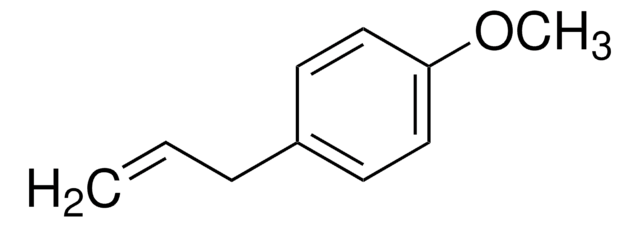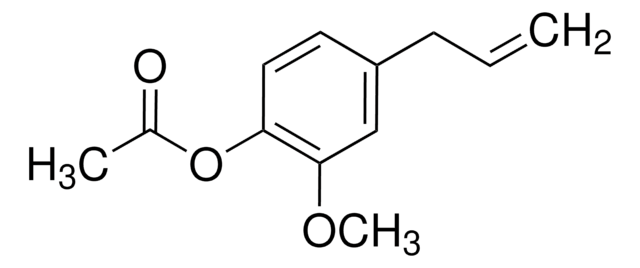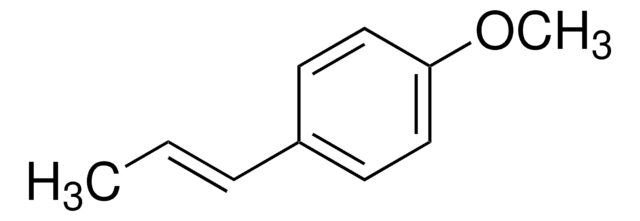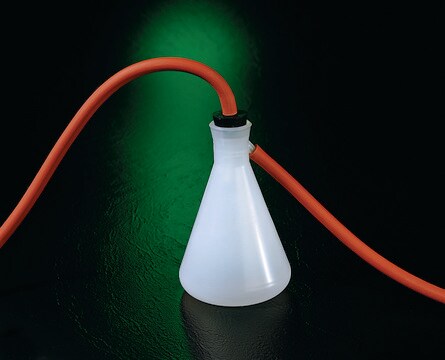W241105
4-Allylanisole
≥98%, FCC
Sinónimos:
p-Allylphenyl methyl ether, p-Methoxyallylbenzene, Chavicol methyl ether, Estragole, Isoanethole, Methyl chavicol
About This Item
Halal
Kosher
Productos recomendados
biological source
synthetic
Quality Level
grade
Fragrance grade
Halal
Kosher
agency
follows IFRA guidelines
reg. compliance
EU Regulation 1223/2009
FCC
FDA 21 CFR 117
FDA 21 CFR 172.515
assay
≥98%
composition
Contains IFRA restricted 4-Allylanisole
refractive index
n20/D 1.521 (lit.)
bp
215-216 °C (lit.)
density
0.965 g/mL at 25 °C (lit.)
application(s)
flavors and fragrances
documentation
see Safety & Documentation for available documents
food allergen
no known allergens
fragrance allergen
no known allergens
organoleptic
anise; green; spicy; herbaceous; minty; sweet
SMILES string
COc1ccc(CC=C)cc1
InChI
1S/C10H12O/c1-3-4-9-5-7-10(11-2)8-6-9/h3,5-8H,1,4H2,2H3
InChI key
ZFMSMUAANRJZFM-UHFFFAOYSA-N
¿Está buscando productos similares? Visita Guía de comparación de productos
Categorías relacionadas
Disclaimer
signalword
Warning
Hazard Classifications
Acute Tox. 4 Oral - Aquatic Chronic 3 - Carc. 2 - Eye Irrit. 2 - Muta. 2 - Skin Irrit. 2 - Skin Sens. 1
Storage Class
10 - Combustible liquids
wgk_germany
WGK 2
flash_point_f
177.8 °F - closed cup
flash_point_c
81 °C - closed cup
ppe
Eyeshields, Faceshields, Gloves, type ABEK (EN14387) respirator filter
Elija entre una de las versiones más recientes:
¿Ya tiene este producto?
Encuentre la documentación para los productos que ha comprado recientemente en la Biblioteca de documentos.
Los clientes también vieron
Nuestro equipo de científicos tiene experiencia en todas las áreas de investigación: Ciencias de la vida, Ciencia de los materiales, Síntesis química, Cromatografía, Analítica y muchas otras.
Póngase en contacto con el Servicio técnico










